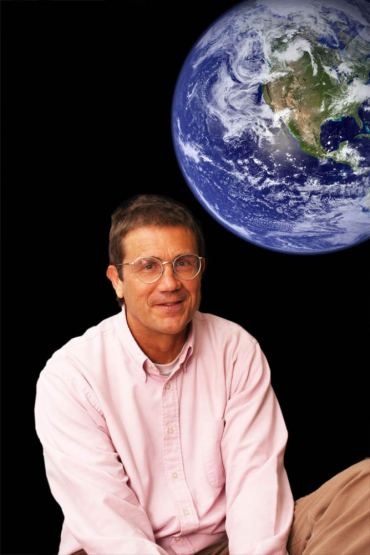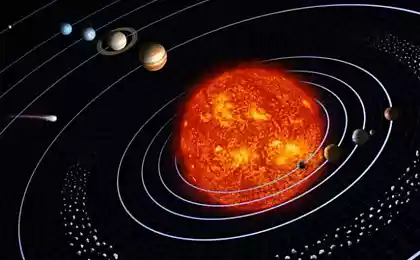1241
Man must seek new planets to survive

Search for planets that could support life outside our solar system should be a top priority in astronomy, according to Australian researchers
Understanding the "habitability" and use this knowledge in order to locate the nearest habitable planet, it can be extremely important for the survival of the human species, according to PhD Laynviver Charlie and his graduate student Aditya Chopra from the Australian National University.
Laynviver and Chopra studied the current situation in the research environment and the existence of life on Earth and prospective conditions for the existence of life on other planets, as well as the history of the search of planets where life is possible.
Since it was made the first discovery of a planet orbiting another star, in 1995, the number of discovered exoplanets soared to more than 750. It is known that only a small part of them can belong to a category of planets "Earth-like", and astronomers are today very far from knowing whether there is life on one of these planets.
"The study of these planets suitable for life, has become the new holy grail of astronomy - said Laynviver. - This is probably one of the most significant, the most perplexing and important problems faced by planetary scientists. In the next 10-20 years we will have to work hard on a solution and find it ».
Laynviver said that one of the reasons why people should be looking for habitable planets, is the future colonization of planets person. He rejects the idea that people should stay on Earth; Scientists compare it with the attitude of some skeptics, the contemporaries of Columbus, his voyage across the Atlantic Ocean.
"It's like the way the Europeans argued in 1450, who believed that the study of rest of the world does not matter," - said Laynviver.

Dr. Charles Laynviver
Compare planets
The paper describing the research and Laynvivera Chopra says that the presence of water and the temperature range within -20 ° C and +122 ° C - the two most important parameters likely existence of life on the planet.
"Over the past few decades, in the course of human exploration of the Earth, life has been detected in all varieties of the most extreme environments where you can not even have thought that the body is able to survive in such conditions, at the same time we find more and more types of extraterrestrial environments that we did not know before - says Laynviver. - With the passage of time and the development of science, these two groups - the earthly and unearthly environment - are expanding in the field of human knowledge and begin to overlap each other, and there are sure to be found the worlds suitable for life ».

Dr. Charles Laynviver. Understanding useful if already known to scientists the planet for life - is the new holy grail of astronomy, says Laynviver
The study also raises the question of the possible existence of habitable planets that contain life. Scientists claim that the conditions for the formation of life, abiogenezisnoy called habitable zone is much narrower than the conditions necessary just to sustain life.
"Life manages its own environment, making the planet habitable. Adaptive features are formed as a result of Darwinian development, to be able to live at least a colder and warmer environment - says Laynviver. - This can be compared to the way an adult can live in a higher temperature range than the child ».
Laynviver believes in programs to monitor outer space, such as a telescope, "Kepler", for example, the mission kotorgo to detect exoplanets extended until 2015.
"The next step should be the development of the satellite, which will be able to consider the atmosphere that will give important information about whether there is life on a given planet," - he said.
If we find Earth-like planets, suggests Laynviver, the next step should be a study of it: "And if we do not find any suitable world for us, we may die out."
























